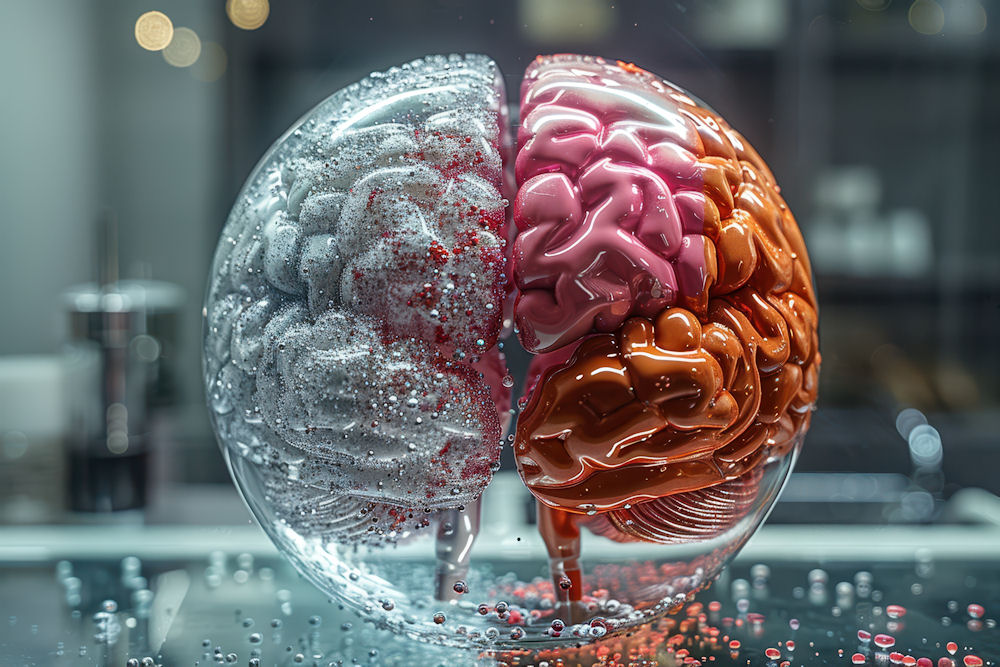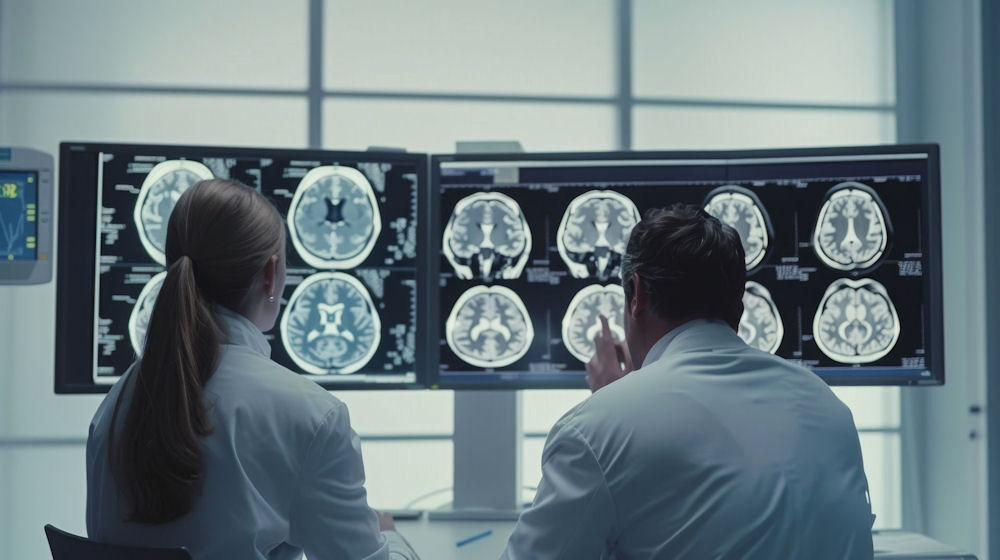When it comes to substances of abuse, alcohol is by far the easiest to obtain. Not only that, but it is also by far the substance that is the most socially acceptable. Think about it, alcohol is essentially engrained in society. From its portrayal in TV and movies to the way it is used in social gatherings, celebrations, or just to “take the edge off” at the end of a long day, alcohol is as big of a fabric of society as peanut butter and jelly.
While alcohol may be a commonly abused substance, in the wrong hands it is not any less dangerous than other illegal substances. Excessive alcohol consumption can have severe impacts on physical health, especially on the brain. One particularly severe impact is alcohol-related brain damage (ARBD), which is a serious condition that can affect memory, cognitive function, and even physical abilities.
Understanding alcohol-related brain damage can help people recognize the dangers of heavy drinking and seek appropriate support or treatment. At Laguna Shores Recovery Center in Dana Point, California, we help individuals suffering from alcoholism by providing them with the necessary treatment resources to break the cycle of addiction. Keep reading to learn more about ARBD, the ways it can be treated, and if you can reverse brain damage from alcohol.
Can Drinking Alcohol Kill Your Brain Cells?
Call it a myth, call it an old wives tale, but chances are you have often heard that drinking alcohol kills brain cells. You may have even heard it from a parent or loved one when you were younger as a scare tactic to stay away from it. While it may be a widely known myth, that’s all it is, a myth.
Alcohol does not directly kill off brain cells. That being said, drinking alcohol, especially in excess can come with side effects that can indirectly lead to the damaging of or even killing off of brain cells. For example, heavy drinking can shrink the brain, leading to cognitive decline and a loss of motor function.
Another way that alcohol can indirectly damage brain cells is through decreased cognitive function such as memory loss, difficulty thinking, issues with motor skills, and even physical changes to the brain.
It’s also important to note, especially since this isn’t a scare tactic, that simply sipping alcohol does not automatically mean that you or someone else will experience brain damage or brain cell issues. As is the case with most things in life, issues arise when something is done in excess, in this case, drinking.
So, how much alcohol is too much alcohol? Well, that’s also not a clear-cut question to answer.
The answer to this varies depending on several factors such as age, body weight, gender, overall health, and if you have a history of addiction or mental health issues in your family making you more prone to developing a drinking problem.
That being said, the CDC has some guidelines when it comes to defining the various “levels of drinking:
- Moderate Drinking – Up to 1 drink per day for women and up to 2 drinks per day for men
- Binge Drinking – Consuming 5 or more drinks on a single occasion for men and 4 or more drinks for women
- Chronic Drinking – Consuming 8 or more drinks per week for women and 15 or more drinks per week for men
Those who fall under the binge and chronic drinking categories put themselves at a greater risk of developing serious physical and mental ailments such as ARBD.
How Alcohol Causes Brain Damage
So, we’ve established that, while not directly, alcohol can result in the loss of brain cells and overall brain damage. But how exactly does that happen? Well, let’s take a deeper look.
Drinking alcohol, especially in excess, can disrupt the overall chemistry and makeup of the brain. Continuing to binge or even chronic drink over an extended time can even reduce the brain’s ability to create new neural pathways, affecting both short-term and long-term memory. Even if you don’t drink in excess often, drinking moderately regularly can cause inflammation of the brain, leading to brain cell damage that can affect thought, behavior, and emotion.
There’s also the matter of the dehydrating aspect of alcohol. Chronic alcohol consumption can leave the body and the brain dehydrated, thus preventing the brain and body the ability to absorb vitamins and nutrients that are essential for brain health and functionality.

The Impact Of Alcohol-Related Brain Damage
As we have already touched on, ARBD can lead to significant, life-altering impacts on an individual’s quality of life. Memory loss, lack of coordination, difficulty concentrating, and emotional instability are all common in those suffering from alcohol-related brain damage.
This may be the point in time where you are asking, “But can you reverse brain damage from alcohol?” As you can imagine, the answer to that question is complicated as well. The ability to reverse any sort of ARBD largely depends on the severity of the damage as well as how long the damage has been going on. As is the case with all medical conditions, the quicker the issue is caught and treatment is started, the better the chances of a reversal. If a full reversal is not possible, treatment may still be effective in keeping the damage from getting worse.
Types of Alcohol-Related Brain Damage
Alcohol-related brain damage is an all-encompassing term used to describe various brain-related conditions that can develop as a result of prolonged alcohol use and abuse.
Examples of different types of ARBD include:
- Wernicke Encephalopathy – A condition caused by thiamine deficiency, leading to confusion, ataxia, and vision problems.
- Korsakoff’s Syndrome – Often follows Wernicke encephalopathy and is characterized by memory loss, hallucinations, and severe cognitive impairment.
- Alcoholic Dementia – Resembles traditional dementia and includes memory loss, poor decision-making, and reduced cognitive abilities.
- Cerebellar Atrophy – A condition affecting the cerebellum, leading to poor balance, coordination issues, and motor dysfunction.
Causes of Alcohol-Related Brain Damage
By now you have probably figured out that the main cause of alcohol-related brain damage is prolonged, heavy alcohol consumption. That being said, some other factors can contribute to the development of ARBD that you may not be aware of. Some secondary causes of ARBD include:
- Genetics – Someone with a family history involving mental health and addiction issues may be more susceptible to developing a drinking problem which can lead to ARBD.
- Liver Damage – While the liver metabolizes alcohol, over time heavy drinking can cause liver damage. This can prevent the liver from filtering toxins, thus increasing the risk of ARBD.
- Thiamine Deficiency – Chronic alcohol use impairs the body’s ability to absorb thiamine, an essential nutrient for brain function.
- Nutritional Deficiencies – Heavy drinking often leads to poor eating habits, depriving the brain of essential vitamins and minerals.
How is ARBD Different From Dementia?
You may be reading all of this and thinking to yourself that ARBD sounds a lot like dementia. While you aren’t wrong in that the symptoms appear very similar, how the two conditions form could not be any more different.
Yes, both cause cognitive decline. However, dementia is typically a degenerative disease often related to age. ARBD, on the other hand, is directly related to alcohol use and abuse and can be reversed or stopped if the person stops drinking and gets treatment.
Alcohol-Related Brain Damage Diagnosis
However, since the two conditions do have many similarities, it can sometimes make it more difficult to diagnose ARBD in a person. If you fear that either you or a loved one may be suffering from ARBD it is important to reach out to a medical professional or therapist right away for an evaluation and diagnosis.
A comprehensive diagnosis typically involves a thorough medical and psychological evaluation, including:
- Medical history: Understanding the individual’s drinking habits, nutritional status, and any family history of mental health issues.
- Physical examination: Looking for signs of liver damage, malnutrition, or other physical symptoms associated with ARBD.
- Cognitive tests: Assessing memory, concentration, and problem-solving abilities.
- Brain imaging: MRI or CT scans can reveal changes in brain structure, such as shrinkage or damage to specific areas.
Treatment for Alcohol-Related Brain Damage

Once a comprehensive evaluation has been done and a diagnosis has been given, treatment options will often be presented to get the affected person the help that they need to either stop or even reverse the symptoms of ARBD.
Depending on the severity of the alcohol-related brain damage and if the person is also suffering from any mental health conditions or addiction issues, such as alcoholism, addiction, and mental health treatment may be required as part of an overall treatment plan.
Our Alcohol Rehab Center Can Help You Recover
If you or someone you know needs rehab treatment as part of their overall ARBD treatment program, we are here to help. At Laguna Shores Recovery, we offer several treatment programs including holistic and medication-assisted inpatient treatment.
Contact us today to learn more about our treatment options and to get the help you need with alcohol-related brain damage.

 Matthew Beck B.A, M.A, LMFT
Matthew Beck B.A, M.A, LMFT 


